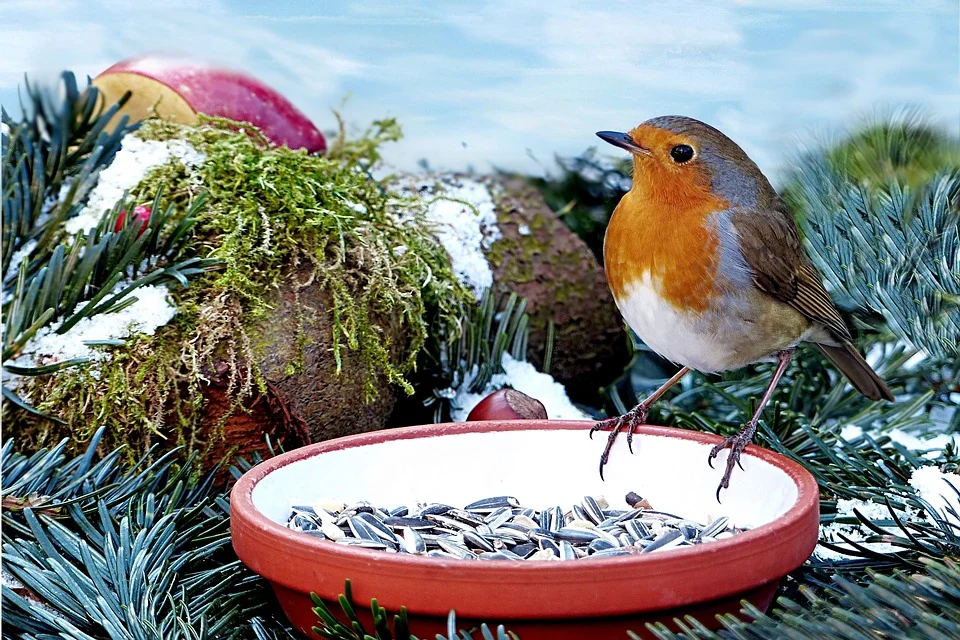Bird seed is one of the most common foods you can offer to your feathered friends. Like humans, they also choose their food wisely and consume those that are safe, nutritious, and appealing to their taste.
So, if you want to keep your backyard goldfinches healthy or attract more nuthatches during your bird watching, then you should invest in high-quality wild bird seeds.
Read on below to learn what birdseed to choose and how to identify premium quality seeds from the bad ones.
What Makes a Quality Bird Seed
Bird seeds come in different mixtures and qualities, depending on the manufacturer or seller. Some may compromise the quality of their product by adding irrelevant fillers, while others might prioritize profit by selling old or rotten products.
Luckily, there are still a lot of retailers out there who offer premium quality birdseed. You just need to know how to spot and choose the superior ones among the rest. Some of the things you should look at when buying bird seeds for your backyard flock include the following:
- Content or Mixture Proportion – when buying a bag of mixed seeds, always check the content and make sure that it has more nutritious seeds inside. Some examples of good-quality seeds include sunflower, millet, and nyjer.
Low-quality feeds are usually packed with fillers that no bird wants to eat, such as milo, rye, and cracked corn.
- Freshness – quality bird seeds should be fresh, which means that it’s harvested from the most recent season. Old or spoiled seeds provide little to no nutritional value and may be contaminated with fungi, molds, feces, and other substances dangerous to birds.
Check for bad bird seeds by inspecting their look and smell. Spoiled ones usually have a rancid smell, form clumps, are dull in color, sticky, dusty or powdery, dried out, and may have an insect infestation.
- Cleanliness – healthy and nutritious seeds should be clean inside out. Bird seeds should have less dust, empty hull, sticks, and other inedible debris. It should also be packed in a clean and sturdy plastic or barrier bag to avoid exposing it to moisture and contaminants.
- Ingredients – high-quality seeds should be free from insecticides, pesticides, and other chemicals harmful to birds.So always check the label in your package to know its contents and if it’s harvested organically.
Quality Seeds for Wild Birds
Here are some of the most popular high-quality seeds that your backyard flock will love. The best wild bird seed mix should contain a generous amount of one or more of the following seeds:
- Sunflower – this tasty seed attracts almost every kind of bird because it’s tasty, easy to crack, and digestible. It is also a good provider of proteins, carbs, and minerals that can keep birds healthy all year long. There are different kinds of sunflower seeds to choose from, such as black oil, striped, and hulled sunflower seeds.
- Safflower – these small but nutritious seeds are also popular with most backyard feathered friends except for blackbirds. Additionally, safflower helps keep away squirrels from hogging the bird feeder due to its bitter taste for them.
- Nyjer – these tiny, black seeds have an exceptionally high oil content, making them the perfect bird food during winter. But there’s a downside: nyjer or “thistle” is more prone to spoilage compared to other bird seeds. Plus, you need to buy a nyjer feeder to house it due to its tiny seed size.
- Peanuts – whole, shelled peanuts attract larger birds, such as woodpeckers, grackles, and jays. Put out the unshelled peanut hearts and chips in your feeder to attract titmice and chickadees.
- White Proso Millet – these are usually found as a component of mixed bird seed but can also be sold individually. Include it in your feeder to attract juncos, doves, quails, and sparrows.
Conclusion
Keep your flock healthy and attract varying bird species by providing them with high-quality bird seeds. Learn more about the different types of bird food and seeds that you can incorporate into your backyard feeder from your trusted birdseed dealer or manufacturer.

